Search
Remove Ads
Advertisement
Summary 
Loading AI-generated summary based on World History Encyclopedia articles ...
Search Results
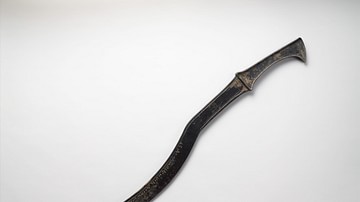
Image
Assyrian Sickle Sword
A bronze Assyrian sickle sword that is believed to have belonged to the Assyrian king Adad Nirari I (r. 1307-1275 BCE), made in northern Mesopotamia, c. 13th century BCE. The blade bears the cuneiform inscription: "Palace of Adad-nirari...
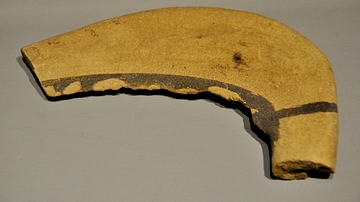
Image
Clay Sickle
This cutting tool witnessed the beginning of agriculture. Ubaid period, 5th millennium BCE, Mesopotamia, Iraq. (The Sulaimaniya Museum, Iraq).

Definition
Cronus
In Greek mythology, Cronus (also spelt Kronos) is a Titan and the youngest son of Uranus (Heaven/Sky) and Gaia (Earth). He dethroned Uranus and became the world's first king, ruling over his siblings and fellow Titans. Cronus married his...
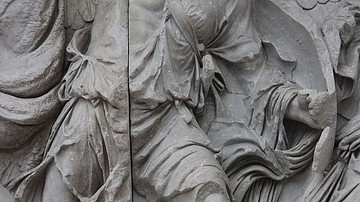
Definition
Uranus
Uranus (also spelt Ouranos) is the personification of heaven and the sky in Greek mythology. His Roman counterpart is Caelus. Gaia (Earth) gave birth to Uranus and chose him to be her equal. She lay with him, resulting in the birth of the...
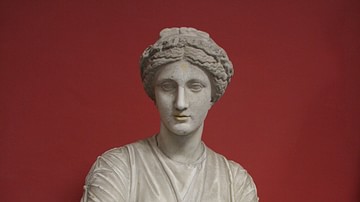
Article
Hesiod on the Birth of the Gods
The Greek poet Hesiod (c. 700 BCE) is most famous for his works Theogony and Works and Days. In this passage from Theogony, Hesiod relates the birth of the gods from cosmic Chaos and follows the lineage through the great Zeus, King of the...

Definition
Medusa
Medusa is a figure from Greek mythology, the only mortal of the three Gorgons, along with her immortal sisters, Stheno and Euryale. The three Gorgons were born to the sea god of the dangers of the hidden deep, Phorcys, and the goddess of...

Definition
Gaia
Gaia (also Gaea or Ge) is a primordial goddess and the personification of the Earth in Greek mythology. Gaia emerged from Chaos and is considered the supreme or mother goddess by immortals and mortals alike. All gods and goddesses are descended...

Definition
Perseus
Perseus is one of the greatest and oldest pan-Hellenic heroes of Greek mythology. Perseus famously killed the dreaded Medusa, a Gorgon with snakes as hair and whose stare turned men to stone. Perseus also carried out the daring rescue of...
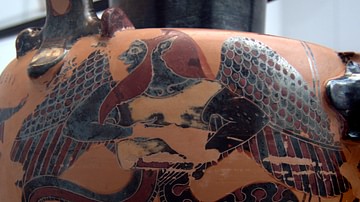
Definition
Typhon
Typhon (also Typheus) is the largest and most dreadful monster in Greek mythology. He was tall, with a brutish face, and had wings, countless snakeheads in place of hands, and a lower body made up of coiled serpents. His eyes flashed fire...
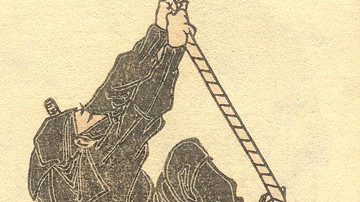
Definition
Ninja
Ninja (aka Shinobi) were the specialised assassins, saboteurs, and secret agents of medieval Japanese warfare who were highly-trained proponents of the martial arts, especially what later became known as ninjutsu or 'the art of the ninja'...